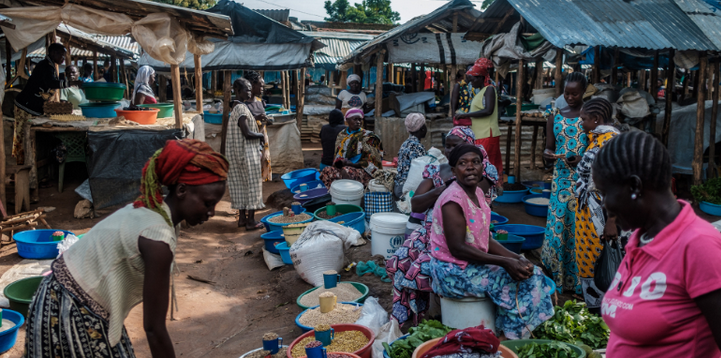Several women entrepreneurs in South Sudan’s Yei town have decried the lack of access to finance in form of loans and said, coupled with high taxes, their businesses have been negatively affected.
According to the businesswomen, it became extremely difficult for them to continue engaging in commerce after conflict erupted in Yei and its environs after July 2016. They appealed to the government to support them by providing low-interest business loans and tax exemptions to boost their enterprises.
Eunice Vicky, a businesswoman dealing in mixed goods such as mattresses, soaps, and sugar among others, said lack of access to finance has made many of her colleagues abandon trading.
“The most difficult challenge we are facing in Yei is that the taxes on local businesswomen are too high and what we want is tax exemption or low taxes for startups by local women,” she said. “It is the government killing us with high taxes and our appeal to the government is that we need support through loans so that we can boast on our businesses.”
Another Yei businesswoman, Joyce Taban, expressed disappointment over the lack of support from the government and said the leaders have forgotten the support the women rendered during the liberation struggle.
“Let the government support us through the provision of loans so that women can grow in business because we have huge responsibilities at our homes,” she said. “The worst thing is the exorbitant taxes levied on the women’s small growing businesses by the government.”
Meanwhile, Viola Keji, who deals in agricultural produce in Yei’s main Dar-Salam market, said the lack of capital and high taxation were the main factors negatively affecting her business.
“We businesswomen in Yei are calling on the government to design programs that empower women through the provision of loans to boost our businesses because currently, we are sustaining our business sales through our farm produce,” she appealed. “We want the government to help us so that we can expand our businesses.”
On her part, Hawa Adam, a women’s rights activist who doubles as the chairperson of the Yei Women’s Association, said many women are traumatized, suffering, and have resorted to drinking alcohol.
“You find that women are traumatized and some of them have resorted to drinking alcohol because they are psychologically frustrated,” she stated. “If they are given some support through loans, they can grow in business. Some of them who are already in business are affected by the high taxes and we call for support for them.”
A senior government official in Yei Payam who spoke on condition of anonymity admitted that there were multiple layers of taxation by several entities which resulted in exorbitant and duplicated tariffs which negatively impacted local businesses.
“Indeed, some of the taxes have affected growing businesswomen and for us, we levy taxes ranging from SSP 2,000 SSP, 5,000, and 10,000 per month, and some of the other taxes range from SSP 30,000 SSP, 50,000 to 100,000 SSSP per month or annually are done by the county and state authorities,” he explained. “The businesswomen must present their complaints about tax in writing to the government so that these challenges are addressed.”




